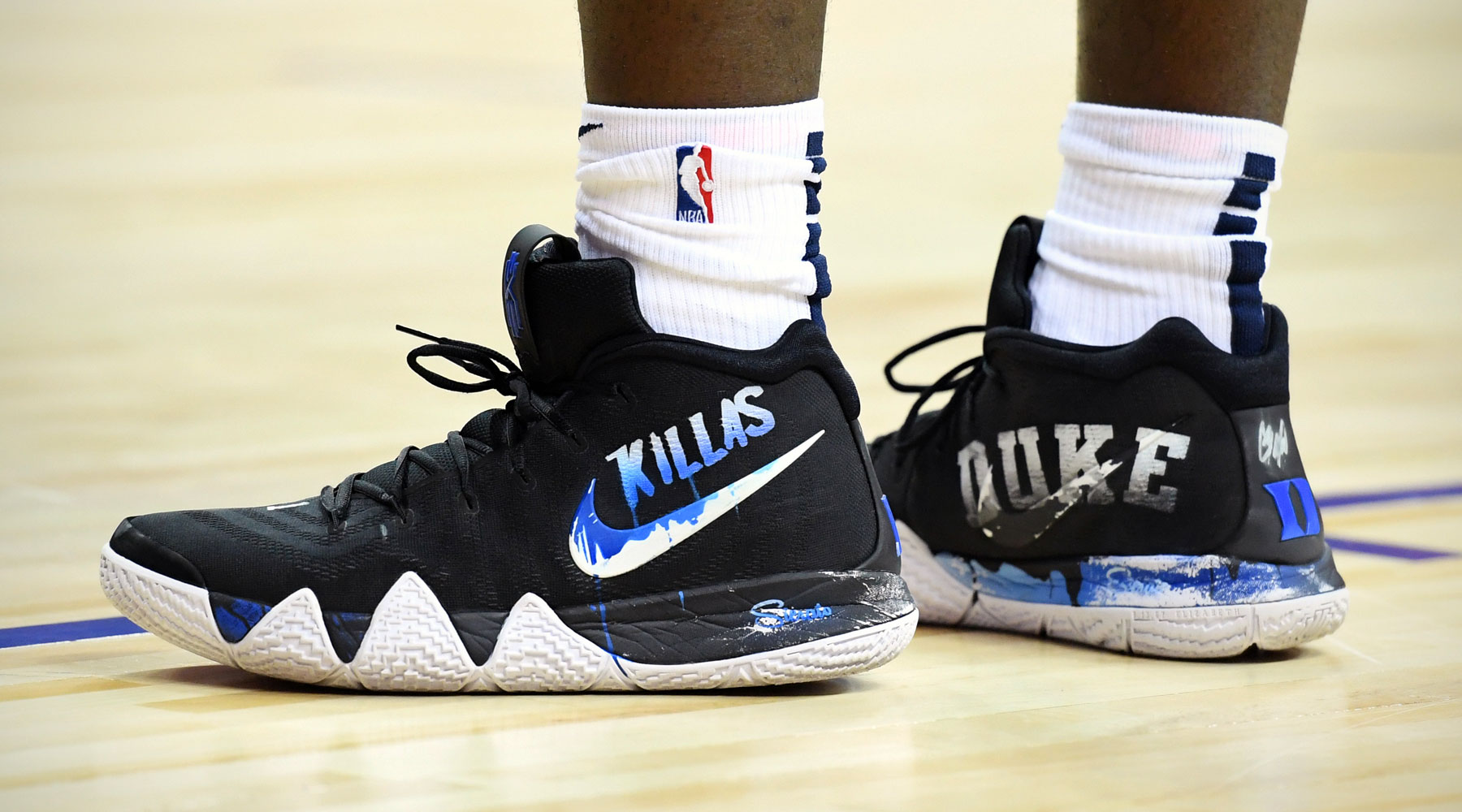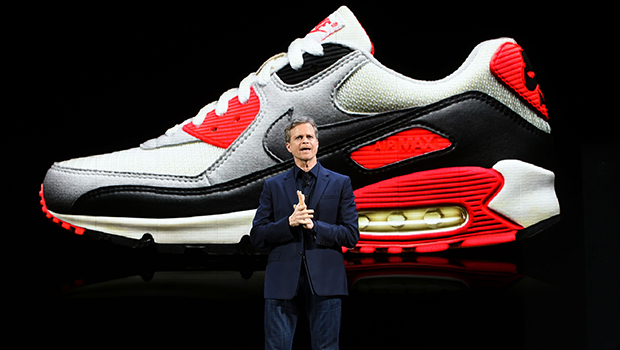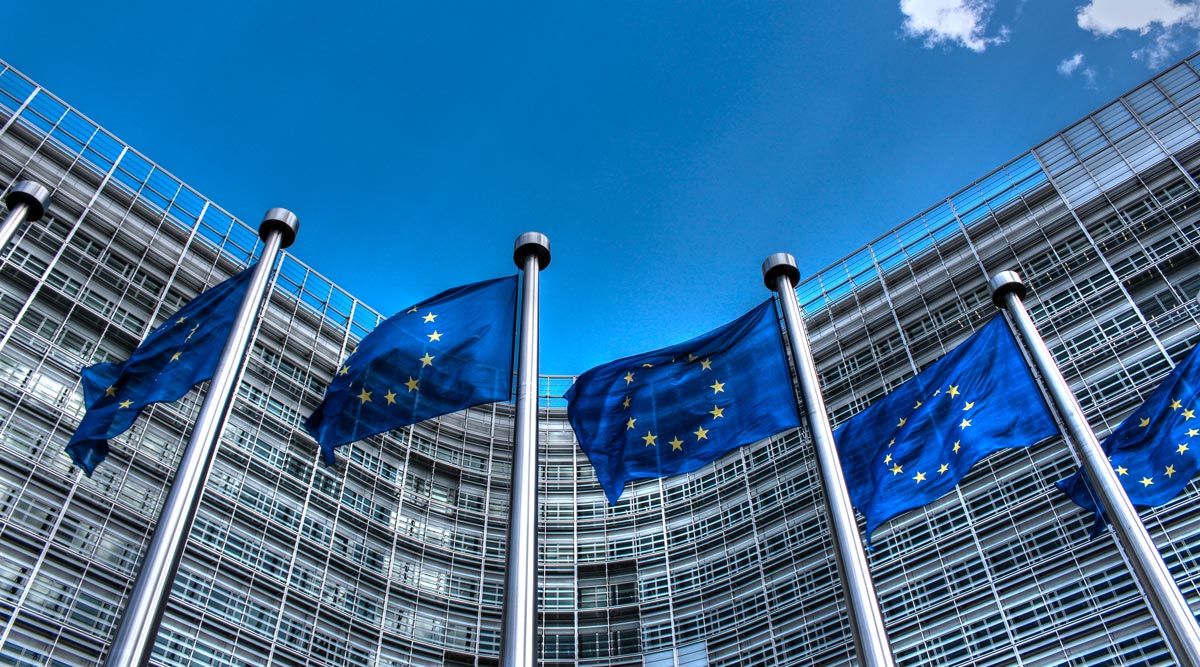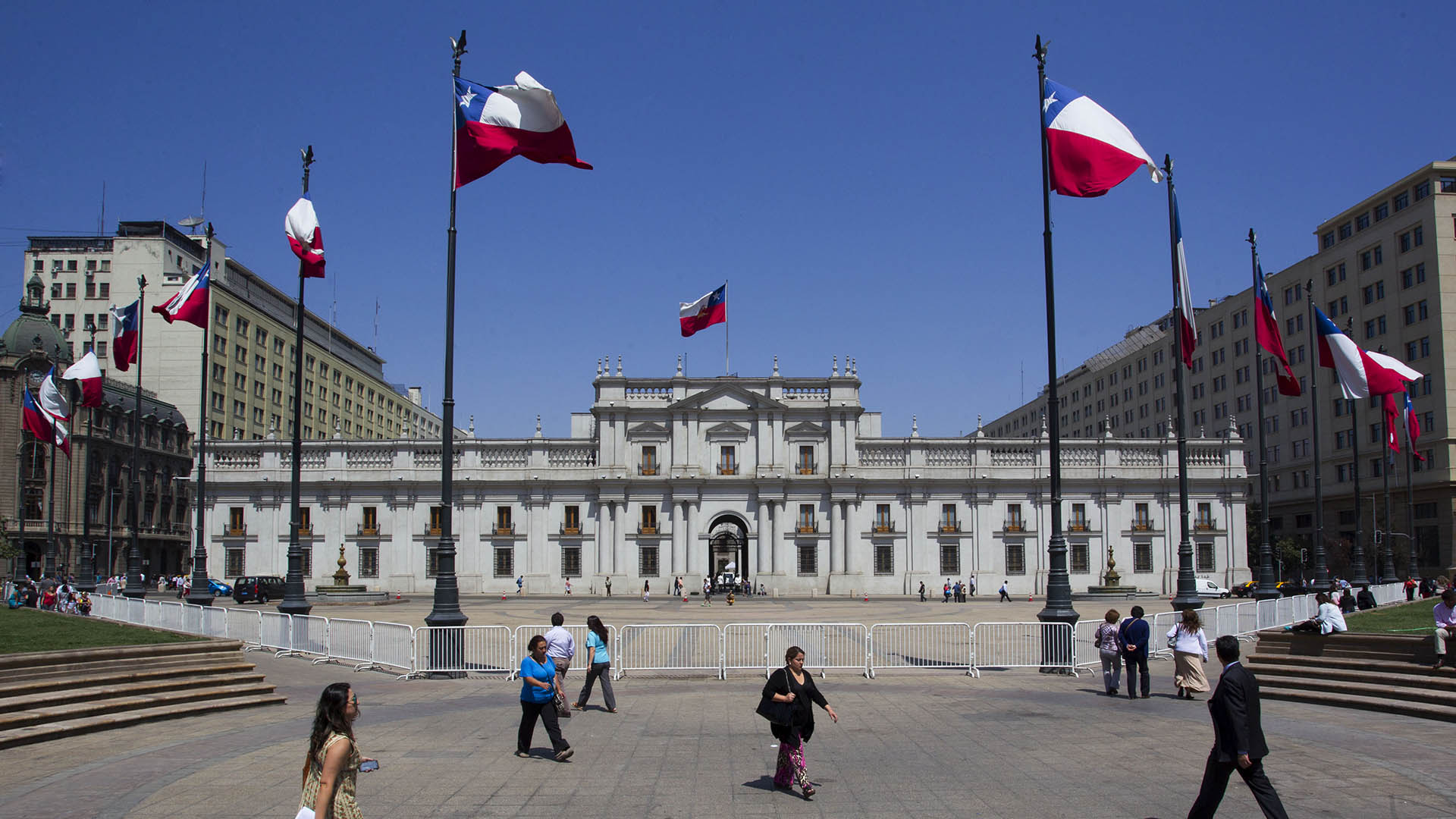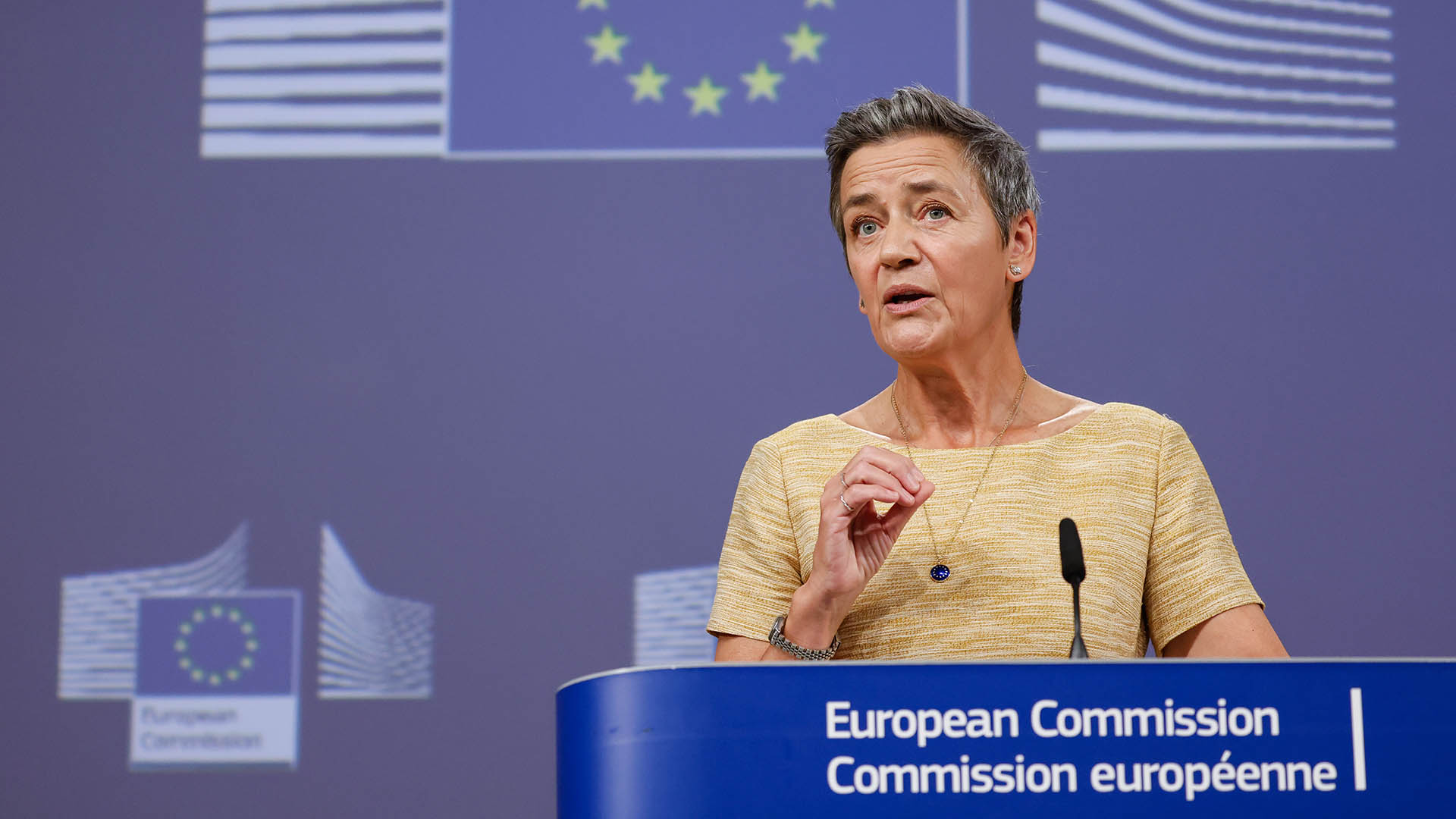Europe’s competition chief Margrethe Vestager has provisionally concluded that Nike paid too little tax in the Netherlands — the sportswear giant’s most important base outside the United States — for each of the past 14 years.
The findings of the Dane, who has incurred the wrath of U.S. President Donald Trump, could ultimately cost Nike more than a billion dollars in back taxes.
Vestager has previously ruled that Apple repay $16.5 billion in taxes and Google more than $9 billion for antitrust violations.
Her interim Nike decision follows revelations about the company’s tax affairs first published in the Paradise Papers, an investigation led by the International Consortium of Investigative Journalists and based on leaked files from the offshore industry.
In 2017, Paradise Papers journalists discovered that Nike for years had been quietly pooling its income from across Europe in the Netherlands, before transferring about a billion dollars a year, tax-free, to another Nike unit in the North Atlantic tax haven of Bermuda.
The transfers, which started in 2006, were described by Nike as intra-group royalty fees, paid to a Bermudan subsidiary in exchange for the use in Europe of the sportswear firm’s iconic Swoosh trademark and other intellectual property.
In a private agreement, known as a “tax ruling,” the Dutch tax authorities approved Nike’s method for calculating the amount of income sent to Bermuda, and pledged not to tax it.
Leaked files exposed Nike’s Bermuda operations
But leaked Paradise Papers documents suggested that Nike’s Bermudan unit, despite owning valuable intellectual property, amounted to little more than an empty corporate shell, with no employees. This called into question the justification for large royalty payments to the tax haven.
The Bermudan subsidiary was registered to the local office of Appleby, an offshore legal and corporate services firm, and overseen by staff at Nike’s global headquarters in Beaverton, Oregon, in the United States, some of them experts in international tax avoidance.
A duplicate of the Bermudan company’s official seal – a stamp used to execute documents in significant transactions – was kept in Beaverton.
The Paradise Papers was an ICIJ collaborative investigation based on a leak of offshore documents obtained by Süddeutsche Zeitung newspaper in Germany and shared with more than 90 media partners around the world.
The papers provided a rare look at the corporate plumbing inside some of the largest corporations in the world, much of it serving no commercial purpose other than to avoid tax. As well as revelations about Nike, the documents shined a light on secret arrangements at Apple, Allergan, NetApp, Tesla and Uber.
Nike misrepresented ‘economic reality’
On July 1, Vestager released a detailed, 56-page letter, sent to the Dutch government, in which she said that it had been wrong of Nike to portray its Bermudan subsidiary as “entrepreneurial,” while describing the function of its Dutch business as a “routine” distribution operation.
In 2014, Nike switched ownership of its intellectual property from Bermuda to a type of Dutch shell company known as a “commanditaire vennootschap,” or C.V., that is free from tax. The switch had little impact on Nike’s tax avoidance structure, which continued to suck untaxed income out of European operations.
Regardless of the official contracts between the Nike subsidiary companies, Vestager insisted the sportswear maker’s summary of these interrelations was a fiction unsupported by the “underlying economic reality.”
In fact, by 2016, Nike’s Dutch business was so important that it employed more than 9,000 staff — more than 13 percent of its global workforce — and was deeply involved in a wide range of critical business activities, including athlete sponsorship and endorsement deals designed to enhance the value of intellectual property.
Asked for its reaction to Vestager’s letter, in a statement Nike said it was “subject to, and rigorously ensures that it complies with, all the same tax laws as other companies operating in the Netherlands.” It added: “We believe the European Commission’s investigation is without merit.”
Trump hits out at Vestager again
The release of Vestager’s provisional decision came just five days after U.S. president Donald Trump launched a personal attack on Vestager, not for the first time.
“You have a woman in Europe, I won’t mention her name, she hates the United States, perhaps worse than any person I’ve ever met,” he told a Fox News interview on June 26. “She’s suing all our companies … They’re suing Apple for billions of dollars.”

His comments echoed what he was said to have told European Commission president Jean-Claude Juncker a year ago: “Your tax lady really hates the U.S.”
Trump’s latest attack came as European leaders were busy last week thrashing out who was to take over from Juncker as commission president, with Vestager a contender for the EU’s top job. This week, however, it was announced she had missed out, though the experienced Dane remains a candidate for the post of deputy head of the commission.
It is even possible she may retain the EU competition brief, despite upsetting the U.S. president and some of America’s largest corporations. Within Europe Vestager has won much support for standing up to big corporate interests, be they American or not.
EU commission take on multinational tax avoidance
As the EU’s competition commissioner, Vestager can effectively unwind any tax arrangement that involves a member state giving preferential treatment to a favored company.
Last year, Vestager forced Ireland to collect $16.5 billion (€14.3 billion) in back taxes from Apple after finding the Irish tax authorities’ treatment of the iPhone maker amounted to illegal state aid. Apple is appealing the decision.
Other countries have been ordered to request back taxes from Starbucks, Fiat and Amazon after the commission found a series of tax rulings to be similarly in breach of EU competition laws. Further probes are ongoing concerning IKEA and the French electricity firm Engie.
Vestager and her predecessor Joaquín Almunia have focused their attention on tax deals offered by some smaller EU countries — including the Netherlands, Luxembourg, Ireland and Belgium — that had, over many years, set themselves up as attractive destinations for multinational corporations looking to establish a regional headquarters.
EU competition officials first looked at the Dutch tax affairs of Nike and other multinationals in 2013 and 2014. But it was not until after revelations from the Paradise Papers were published in 2017 that a detailed investigation was taken up in earnest.
